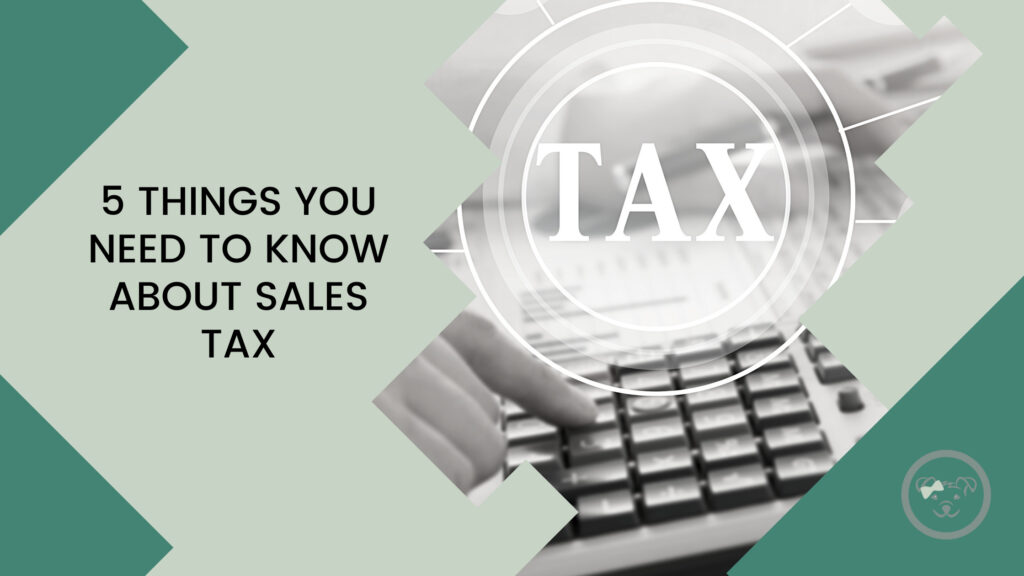The Frustration with Sales Tax
The lack of continuity in the U.S, tax system from one state to the next has always created challenges for small business owners. This is particularly true when it comes to sales taxes. Each state has its own rate schedules and tax collection criteria. If a business is selling merchandise nationally, you can imagine the nightmare they face trying to track and pay their sales tax liabilities. Sales taxes in QuickBooks Online simplifies this challenge for you.
Sales Taxes in QuickBooks Online are Simple
For users of the QuickBooks online software solution, the entire sales tax payment system has been refined to the point that everything is manageable with the click of a button or two. That adds up to significant savings of time, effort, and money for you as a small business owner.
Think about it. Can you really afford to keep spending your time having to worry about collecting and paying sales taxes? As a good businessperson, you know the right answer is no. You have a business to run, and QuickBooks Online is available to help you do that as effectively and efficiently as possible. It is the perfect accounting software for small businesses.
Managing Sales Taxes in QuickBooks Online
Before we go further, you have something you need to do as a QuickBooks beginner. You need to know how to setup QuickBooks Online. Before you start to worry, you should know that setting up QuickBooks Online is reasonably fast and easy. That is why many QuickBooks beginners have made this the number one accounting software package in the world.
For further clarification, here are five things you need to know about managing sales taxes with QuickBooks online.
How QuickBooks Calculates Tax Rates
When calculating applicable sales tax rates, the QuickBooks sales tax module looks at the following criteria:
- The applicable state: If you sell in Texas, the system will calculate sales tax based on the current statutory rates in Texas. The tax tables are always current.
- The merchandise being sold: some types of merchandise might be exempt from sales tax (food items in some states for example)
- The Customers: Some customers are certified as sales tax exempt (i.e. nonprofits)
All of this is built into the system and automatically calculates applicable sales taxes based on what you enter for the customers as part of setting up QuickBooks Online.
Note: By law, you as the merchant are responsible for verifying a customer’s sales tax-exempt status. You can usually do that by requesting their state exemption number or asking for a copy of the certification.
Updating to a New QuickBooks Version from Intuit
From time to time, Intuit has its programmers make changes to update the existing QuickBooks Online accounting software for small businesses. When you are required to start using a new version, you will get plenty of notice regarding when and any new sales tax features that might be coming with the updated version.
As of now, there is a new QuickBooks Online version on the net. Depending on how you have your QuickBooks Online sales tax set up, we may have to assist you with how to setup QuickBooks Online for conversion to the new version. This will likely require moving historical data. We are ready and willing to do just that.
Combing Multiple Sales Taxes in QuickBooks Online
In some jurisdictions, customers may be required to pay multiple sales taxes at different levels. For instance, some customers might have to pay city, county, and state sales tax. If so, you will need to track and pay each individual component.
QuickBooks Online has a process in place for said circumstances. The system will actually combine the cumulative sales tax rates in order to invoice your customers with a single sales tax amount. Meanwhile, the system will simultaneously track the individual components to facilitate you making the correct payment amounts to each applicable government agency.
Handling of Special Tax Exemption Rules
As we mentioned above, some products in some states might be exempt from sales tax. For instance, milk was once exempt from sales tax in California. The QuickBooks Online system has a process in place that will allow you to override statutory tax calculations by product and circumstances.
It’s an edit function that allows you to go into individual data records and override calculations on a line-by-line basis. As part of the editing function, you will see a toggle you can use when a line item is nontaxable. In some instances, this process can get very complicated. That’s why we are here. If you need our help with any special functions, we will be glad to assist you.
Tracking Sales Taxes in QuickBooks Online
This is where QuickBooks Online will make your life as a small business owner easy. The QuickBooks Online sales tax system is set up to record and track all sales tax transactions by agency and state.
Prior to issuing payments, you will have access to both detailed and summary sales tax reports. When you are satisfied your data is correct, the QuickBooks Online system will allow you to cut checks or initiate online banking transfers to pay the company’s sales tax liabilities. Furthermore, the payment will get recorded against the appropriate ledger accounts, and your debt is gone.
Remember
We strongly advocate for the use of QuickBooks Online as a solid accounting software for small businesses. If you have any questions about or need help with the software system, please let us know.

